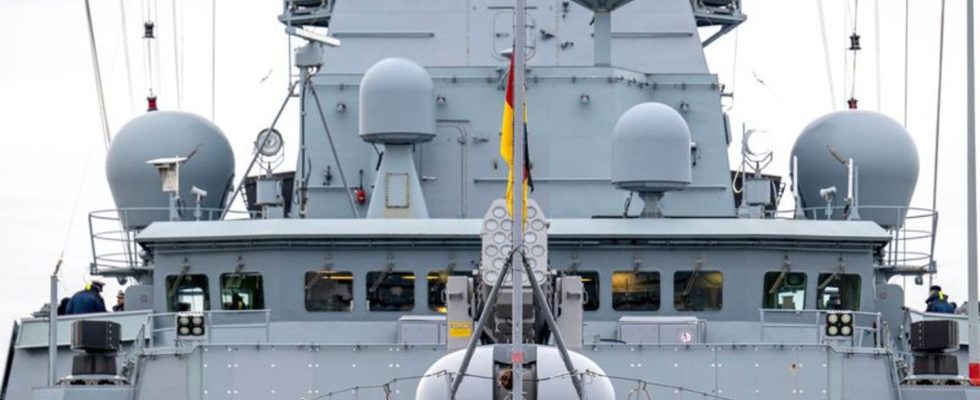Operation Aspides
EU launches naval operation in the Red Sea
Germany wants to take part in the naval operation in the Red Sea with the frigate “Hessen”. photo
© Sina Schuldt/dpa
The EU has quickly planned one of its most dangerous military operations to date. Now it’s starting – Germany also wants to take part.
German Foreign Minister Annalena Baerbock said of the decision: “We have seen that the entire global economy is being hit by the Houthis’ attacks on civilian shipping.” It is not just European ships that are repeatedly endangered by Houthi missiles in the Red Sea, but also all international shipping.
German frigate ready near the operational area
Germany wants to take part in the operation with the frigate “Hessen”. The warship with around 240 soldiers on board was sent from Wilhelmshaven to the Mediterranean on February 8th. The “Hessen” was last in a port on the Greek island of Crete. The mandate for the operation is to be decided by the Bundestag this Friday. This Tuesday, Defense Minister Boris Pistorius (SPD) is expected to visit the troops on the frigate.
The 143 meter long frigate is equipped with anti-aircraft missiles and was specifically designed for escort and maritime control. According to the Bundeswehr, the ship can use its special radar to monitor airspace the size of the entire North Sea. The weapon systems are capable of engaging targets at a distance of up to 160 kilometers.
According to the Bundeswehr, there are also two Sea Lynx Mk88A helicopters on board. They can be used for personnel and material transport, but also for rescue operations. Germany also wants to provide staff for the operation’s headquarters in Larisa, Greece, as well as helicopters.
EU hopes for deterrence
The EU’s hope is that shipping companies will again send their merchant ships through the Red Sea without hesitation. Recently, many had avoided the shortest sea route between Asia and Europe. Because an alternative route around the Cape of Good Hope in South Africa is much longer, this now has significant implications for companies.
EU foreign policy chief Josep Borrell said it was now a matter of restoring maritime security and freedom of navigation in a highly strategic maritime corridor. The operation will play a key role in safeguarding trade and security interests in the interests of the EU and the international community.
In addition to Germany, Italy, Greece and Denmark, among others, want to take part in the operation with warships, which was named after the Greek word for protective shields, “Aspides”. Pro-active attacks on Houthi positions following the example of the USA and Great Britain are not planned. The mandate sets strict limits on the use of weapons. Safeguards must be implemented “in full respect of international law, including the principles of necessity and proportionality.”
Bundeswehr on Sea Lynx Mk88A helicopters Information from the EU about the meeting Information from the Bundeswehr on frigates of the Sachsen class EU decision to set up Operation “Aspides” Information from the Bundeswehr on the upcoming deployment EU press release dated February 19, 2024

